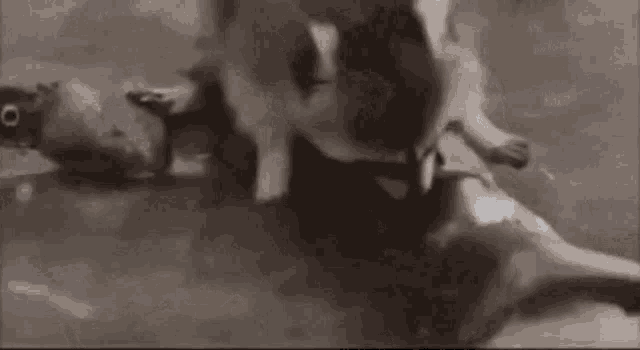The reason for this behavior is actually much more interesting than you might think!
Raccoons have the most sensitive sense of touch of any animal known other than primates. Over two thirds of the sensory processing power of a raccoon’s brain are dedicated to its sense of touch, while the critter’s tiny hands are packed with over ten times the number of nerve endings as a human hand.
These very sensitive hands develop a thin protective barrier over time- sort of like a callous— but the layer is softened by water.
When a raccoon dips its hands into water, it can feel with perfect acuity. A raccoon will explore its food, memorizing and savoring its texture to learn about it and to be better able to identify and search for it in the future.
I don’t know if this is true, but I’m upvoting it anyway, just in case…
 This lil guy learned not to wash cotton candy
This lil guy learned not to wash cotton candy
He is a wizard.
god i fucking detest these articles that have to interrupt every other sentence with a massive image
Does that mean they like being petted more than any other animal? :O
Try it out and update us 😊
Worst that can happen, he gets to be America’s healthcare minister.
How did you come to that conclusion by reading that?
“They have the most sensitive sense of touch.”
As in, them touching stuff. They might hate high fives though. You should go check!
deleted by creator
In French, they are called “washing raccons”. I don’t even know any other kind of raccon.
Washing Ratons, not raccons. In french ratons are the genus raccoon: small nocturnal omnivorous mammals. Raton-laveur is the common raccoon. There are other less well-known species.
Thank you for correcting me. I’m very unaware of these, as ratons not that commun in France. They are invasive though… But as of now I now more of hedgehog when it comes to small nocturnal omnivorous mammals.
They are “invasive” even where they are native. I go camping in national parks in the south of Québec and those cute little things are annoying as hell. They steal and chew anything you leave unsupervised at your camp site. They come scratch and sniff your tent multiple times a night.
Les osti de ratons!
Heureusement que les hérissons ne sont pas comme ça mais bon, eux sont malheureusement en voie de disparition.
“Washing bears” in German.
Same as Japanese, araiguma
Interesting that it’s the same meaning. I wonder if it came from the Germanic word (particularly the Dutch), or if both languages ended up calling them the same thing independently?
I wouldn’t be surprised if we learned it from the Germans as I don’t think the little guys are native to Japan!
The Dutch and Portuguese were the most influential early foreigners, and it’s “washing bear” in Dutch as well, so they would be the prime suspect.
That’s true. I think we use German loan words mostly for medical stuff (probably not anymore).
Same in Dutch: Wasbeer.
What I call the empty bottle of ale
And in Catalan: os rentador.







